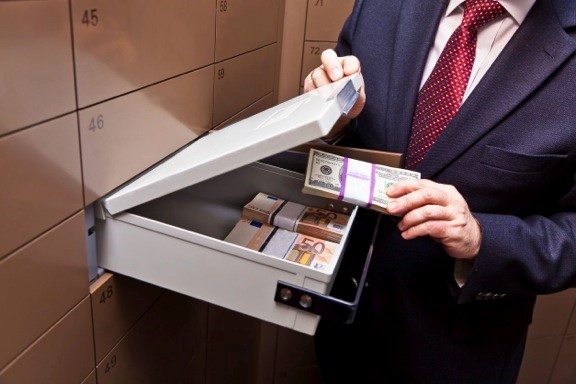
Carla Rathmann worked at the Southwest Research Center (Center) between 2000 and 2015. She was an administrative assistant at the Center located in Mt. Vernon, Missouri. It was a trusted position. The Center is a unit of MU’s College of Agriculture, Food and Natural Resources.
During her tenure with the Center, Rathmann used a university credit card for personal use such as expenses associated with a home remodel, dental expenses and herbicide. She also faked invoices to pay herself and her husband through three shell companies. An internal university audit discovered two other shell companies.
Altogether, Rathmann paid $572,521 to all the shell companies.
Her embezzlement activities were so extensive that the university was forced to shut down the Center in 2015.
Earlier this month Rathmann entered a U.S. District Court in the Western District of Missouri where she pled guilty to one count of mail fraud and one count of credit card fraud. She conceded to the court that she had embezzled a total $716,665 and making $146,144 in personal purchases with the university credit card.
Rathmann now faces a term of 30 years in prison without the benefit of parole. If she receives the maximum penalty, she will spend 25.5 years in prison under the federal goodtime provisions.
Rathmann was arrested after the university, the U.S. Attorney’s Office, and the FBI conducted a thorough investigation and audit of her transactions. By pleading guilty, she will not have her case heard in front of a grand jury. Instead, she must give $716,000 to the government in addition to facing a long period of incarceration.
Staff at the University of Missouri have announced initiatives to prevent future embezzlement that includes training, financial reviews, and more supervisor involvement. All of those initiatives will be enacted next semester to prevent crimes like Rathmann’s.
What Is Embezzlement?
Embezzlement is actually property theft. It occurs when an individual, who is charged with the responsibility of either monitoring or managing someone’s else money or property, elects to steal some or all of the money or property entrusted to their care.
The taking of money or property for an individual’s own gain is theft. Taking money or property to which an individual has legal access but not legal ownership is embezzlement.
Difference Between Federal and State Embezzlement Laws.
Federal embezzlement laws require a nexus between government funds and the theft involved; for example, a federal government worker taking money or property for personal use.
State embezzlement laws, however, not only penalize theft of state and municipal funds or property but the embezzlement from private individuals and entities; in other words, the taking of money or property for which the individual has legal access but not legal ownership.
There are occasions when an individual can be charged with embezzlement at either the federal or state level for example, embezzlement of bank or lending institutions funds as well as funds from credit or insurance companies.
The Categories and Penalties for Federal Embezzlement.
There are two types of federal embezzlement offenses. First, convictions involving a fines of $250,000 are felonies; second, convictions involving fines of $100,000 are misdemeanors.
A felony offense is committed when an individual embezzles money or property, including records or anything of value, whose value exceeds $1,000. Conviction for this offense can result in a fine of $250,000 and a prison sentence up to ten years,
A misdemeanor offense is committed if the value of the embezzlement is $1,000 or less. Conviction for this offense can result in a fine up $100,000 and a jail sentence up to one year, or both.
Factors Distinguishing Embezzlement from Theft.
There are four specific factors that distinguish embezzlement from theft. To be charged with embezzlement, the following must be true:
- The defendant and the victim must be involved in a fiduciary relationship
- The defendant acquired the money/assets/goods in question through the fiduciary relationship
- The defendant acquired the money/assets/goods and gave them to another party
- The defendant intentionally committed the theft/embezzlement
In this recent case, Carla Rathmann was an employee of University of Missouri’s Southwest Research Center. She was paid a salary and performed tasks for the university. Her tasks required the university to place high trust in Rathmann. She received and paid bills, had payroll and accounting duties, scheduled meetings, and organized the Research Center’s staff.
It was Rathmann’s responsibilities that allowed her to embezzle money from the university through the different methods we mentioned above. She took funds from the university by using a university credit card and other methods. She used those funds to pay for personal expenses (often for her husband or dog) and approve fraudulent invoices and bills. And with over $700,000 in embezzled purchases over 15 years? Safe to say these acts were planned and enacted with intention.
Embezzlement Can Be a Serious Federal Crime – as Rathmann Learned

Rathmann will most likely spend the rest of her life in prison. She is currently 54 and faces 30 years behind bars. How was this sentence determined?
Calculating the penalties for white-collar crimes is often confusing and hard to predict for someone not well-versed in federal sentencing. It’s based on a “point” system. You start out with 6 or 7 points for simply committing the offense. Points are then added based on the amount of property that was stolen. For example, stealing $5,000 will get you 2 additional points. Stealing $400,000 will get you 14 additional points. More points are added based on the number of victims, the type of property stolen, and the manner in which the theft was carried out. Specific guidelines are laid out on the United States Sentencing Commission’s website.
If you are charged with embezzlement, you may have to appear in a federal court and face federal sentencing. There are ways to defend against embezzlement and other white-collar charges, but you need someone by your side who has successfully helped others facing similar federal charges. Contact an experienced federal criminal lawyer for a confidential case review today.



